The Israelization of Judaism and the Jews of France
After the terror attacks that hit Paris in January 2015 many observers feared that they were witnessing the end of the long history of Jews in France. Prime Minister Manuel Valls expressed this sense of historical urgency in his now-famous plea:
France is wounded with you, and France does not want you to leave. France tells you once again of its love, support, and solidarity. This love is much stronger than acts of hatred, even if some acts are repeated.
In part, this was a response to Prime Minister Netanyahu’s controversial invitation to French Jews to move to Israel in the wake of the killings. But the question of whether France is safe for Jews is, by now, at least a decade old. The gruesome killing of a young Jewish cellphone salesman named Ilan Halimi by a Muslim gang in 2006 and the murder of children and a teacher in a Jewish school in Toulouse in 2012, along with the seemingly ineffectual French responses to such attacks, had already raised the question.
In fact, French aliyah to Israel has quadrupled since Halimi was murdered, and between 9,000 and 10,000 French olim are expected in 2015, making France the leading country of emigration to Israel, one which will lose a full 2 percent of its Jewish population (the world’s largest after Israel and the United States) this year alone. Moreover, many well-to-do French Jews who have not made a final exit are part of the “Boeing aliyah,” owning a residence in Tel Aviv or Netanya while continuing to work in Paris or Nice. The “push factor” is driven of course by fear of Islamic extremism but also by the ongoing pessimism of young French citizens about the declining grandeur de la France; in fact, 27 percent of French university graduates report that they are planning to expatriate. As for the Israeli “pull factor,” it’s not all about Zionism and Jewish identity. Despite its many internal and external challenges, Israel has a thriving economy and outdoes many other leading democracies in such factors as longevity and citizens’ “happiness.”
As part of a larger study of diaspora Jewry, we have visited France several times over the last two years, interviewing ordinary citizens as well as leading intellectuals. We have come away from each of these visits with the increasing sense that the focus on anti-Semitic violence and aliyah in discussions of French Jewry overlooks a larger and perhaps more significant long-term phenomenon we call “Israelization.” Of course, anti-Semitism has long been “Israelized” and not just in France; the justification of anti-Jewish hatred and violence by reference to Israel’s policies is, by now, an old story. But the implications of the increasing importance of Israeli culture for diaspora Jews have yet to be fully understood, and nowhere is this more true than in France. French Jews follow Israeli media, watch Israeli films, read Israeli literature, conform to Israeli religious patterns, and eat Israeli cuisine. Indeed, according to sociologist Erik Cohen, when given the hypothetical choice, many French Jews would prefer to “be reborn as Jews in Israel.”
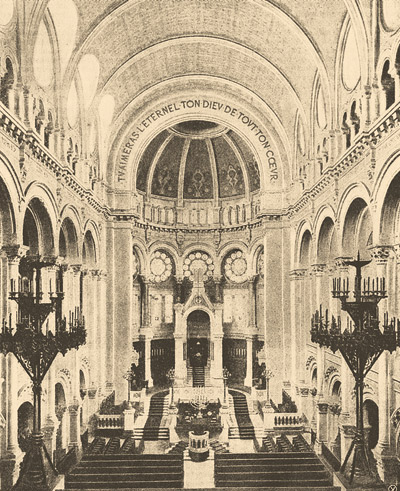
Last Rosh Hashanah in Paris, the synagogues were full. In a small synagogue in the old Jewish quarter of Le Marais, we met four North African Jewish men in their seventies. They invited us to join them in a post-prayer snack of salted crackers, boutargue (cured fish roe), Israeli olives, and arak. Two of them spoke some Hebrew, and the other two spoke a distinctive blend of French, Arabic, and Hebrew. One of them showed us an ad in a French Jewish newspaper for land in the Galilee. “It’s in Yavne’el, and it costs only 8,000 euros! Is it good?”
On the eve of Yom Kippur, we went to the Grande Synagogue on Rue de la Victoire. A seat for the Rosh Hashanah services costs more than 200 euros and the place was packed with the Parisian bourgeoisie in its finest attire. The service was formal and the exquisite choir joined the kol nidrei’s recitation along with the senior cantor. “What you have experienced in La Victoire,” the writer Michel Gurfinkiel told us, “is a relic of 19th-century French Ashkenazi Judaism.” Almost 120 years after Herzl wrote in his diary that his experience in La Victoire drove him to write about the “condition of the Jews,” the synagogue was guarded by police who conducted thorough searches of each worshipper.
The next day we attended services with the Moroccan crowd at Synagogue Vauquelin, a far less formal environment, with warm greetings: hugging, kissing, and chatter (here, too, much of it about Israel). Several services were taking place at the same time, including a small Ashkenazi minyan. In the Sephardi service, everyone is a cantor unto himself. In the Aneinu prayer congregants spontaneously jumped into the solo, and when the shofar was sounded to mark the end of the fast, there was a competition over which ba’al tekia could blow the strongest blast. At Vauquelin there were also, of course, police. At the end of the service, people dispersed quickly, so as not to be easy targets for Islamist hoodlums or a more organized terrorist attack. One imagines that there will be even more security and more precautions this year.
In Dominique Schnapper’s view, today there is no longer a “Jewish question,” there is only a “French question,” which is her way of deploring the disparity between France’s classic commitment to universal principles of laïcité, its famously strict version of the separation of church and state, and the new “droit à différence” (right of difference), its version of multiculturalism. (See video interview.) Schnapper is a distinguished social scientist and former member of the Constitutional Council of France, whose father was the Jewish intellectual Raymond Aron, renowned in the post-war period as an icon of French liberal republicanism. As much as Schnapper worries about Muslim assertiveness, however, she also rejects “Jewish particularism” as it is manifested in “religious ghettoization” and what she regards as an over-identification with Israel.
As readers of this magazine know, social thinker Shmuel Trigano is not a fan of recent French social policy either, but he does not see a return to Schnapper’s brand of secularist republicanism as a viable answer. (See Trigano’s “A Journey Through French Anti-Semitism,” in the Spring 2015 issue, and his subsequent exchange with historians Ethan Katz and Maud Mandel in Summer 2015.) When we met him he criticized the growing estrangement of many French Jews from the republican model but also rejected the idea that the problem is Jewish tribalism or “disloyalty to the ideals of the French civic model and the common good.” That model is, at least for French Jewry, almost irretrievably broken:
I believe that most Jews will leave Europe, mostly to Israel . . . the weight of Jewish existence will rely on the Israeli journey and no longer on the diaspora. This is a gigantic evolution with spiritual, intellectual, political and moral consequences.
Of course, ideological positions become murkier when they play out in the day-to-day lives of French Jews. We spoke with Yonathan Arfi, who had been president of the Union of Jewish Students (UEJF) and emerged as a public defender of Israel during the Second Intifada years. Now, more than a decade later, we met him in his stylish apartment. He has an impressive book collection on Israel and Jewish history, Israeli cinema, and literature. His walls are decorated with Zionist posters from the 1960s, along with a Paris Match magazine cover from the 1930s featuring his Algerian-Jewish great uncle who became France’s first Jewish swimming champion. Arfi said that French Jewish life is completely tied to Israel but that the two need not negate each other. Nonetheless, he admitted, “I am convinced that I need to be a few years in Israel in order to become a true Jew.”
Arfi’s fellow “Republican-Zionist” Jérémie Haddad is married with three kids. “I am tired of talking about Muslim anti-Semitism!” he said. “I am looking for a positive identity for French Jews.” Although Haddad is an observant Jew, he still lauds the virtues of laïcité. He also criticizes Israel for being too “religiously intolerant” and points out that North African Jews have been more successful in France than in Israel: “You [Ashkenazi] Israelis have too many biases.”
Haddad’s family moved to France from Tunisia in 1962, along with the 120,000 or so other migrants who came with the decolonization of French North Africa. His grandparents had four children. Two married non-Jews and assimilated. His father kept the Jewish flame at home and sent his kids to Jewish primary schools. His aunt moved to Jerusalem. “She is haredi with 11 kids,” he said. “We also think about aliyah but in the meantime we are staying in France . . . If our kids will end up in Israel, we won’t object.”
Éliette Abécassis was born in Strasbourg to Sephardi parents. Her father, Armand Abécassis, born in Casablanca in 1933, made his way to France in the early 1950s and climbed the ladder of French academia as a professor of philosophy and advocate of Jewish-Christian dialogue. Éliette, like her father, became a professor, but her first best-selling book, Qumran—a historical thriller on the Dead Sea Scrolls with a bit of an Umberto Eco feel to it—made her a distinctively French kind of literary star, a glamorous intellectual whose life has made the pages of Paris Match.
Despite her own extraordinary success in France, Éliette feels growing uncertainty about her children’s future. (See video interview.) She tells us with great pain that she had to transfer them from a French public school to a private Jewish one, since it is not safe to send Jewish kids to a French public school anymore. Indeed, in recent years Jewish pupils have left the public school system en masse. Nearly 60 percent now attend private—Jewish or, sometimes, Catholic—schools. “I gave my older daughter a French name—Capucine—but my son was born soon after Ilan Halimi was murdered. I gave him a Jewish-Israeli name, Eytan, which means strength.”
An observant Jew herself, Abécassis has been on the front lines of the struggle against the exclusion of Jewish women by ultra-Orthodox rabbis. Her novel, La Répudiée, made into the acclaimed Israeli film Kadosh directed by Amos Gitai, tells the story of a rabbi who instructs a young man in Jerusalem to end his marriage to his beloved young wife because she failed to conceive children. Abécassis herself had a husband who refused to give her a get (halakhic divorce). With the rabbinate of the Consistoire becoming more stringent on marriages and divorces than the Israeli one, Abécassis decided to “import” to Paris two Israeli ultra-Orthodox rabbis to provide her with a “more liberal solution.” We laughed with her about the historical ironies behind her painful domestic drama. The Consistoire, after all, was founded by Napoleon to promote a model of identity in which citizenship and Jewish identity were kept distinct—a Jew at home and a citizen in public—now it enforces the will of the Israeli rabbinate. This, too, is part of the Israelization of French Jewish society.
As in Israel, there are many in France who are searching for liberal religious alternatives to the virtual monopoly of Orthodoxy. A few blocks from Éliette Abécassis’ house, we met Rabbi Delphine Horvilleur at her synagogue, one of the two liberal synagogues in France. Horvilleur comes from an Ashkenazi family with deep roots in eastern France, but her feelings for her country are complicated:
On my father’s side, my grandparents were arrested by the French police and deported to Auschwitz. On my mother’s side, they managed to hide thanks to the assistance of remarkable French Righteous Gentiles. I grew up with this image. On the one side, France had killed us. On the other, France had saved us.
Although she is an American-style rabbi, ordained at Hebrew Union College, Horvilleur speaks fluent Hebrew, which she learned as an undergraduate at The Hebrew University. In today’s France, a young Jew without a synagogue or a strong connection to Zionism has little to hold onto in terms of Jewish identity. Many of the members of Horvilleur’s synagogue seem to be searching for other members of the tribe at least as much as they are looking for a connection with God. Yet, even among her liberal, acculturated flock she observes an implicit orientation toward Jerusalem and even Israeli religious standards. When she receives young couples who want to marry, she says, “Their first question is ‘Will our ketuba be valid in Israel?’”
The “Jewish question” has been a litmus test in debates over French citizenship since the Revolution. Historian Gary Kates has written that the early debate “over Jewish emancipation was [in fact] a debate over what it meant to be a French citizen.” A century later, the “Dreyfus Affair” was a crucial moment not only for Herzl’s Zionism but also for France’s assimilationist civic creed and its democratic institutions. In the early 1930s, opponents of that vision of France attacked its first Jewish prime minister, Léon Blum, and rejected Popular Front socialism as a malign Jewish invention. Nazi occupation and the Vichy regime reduced Jews to second-class citizens. Overnight, in 1940, they lost their public positions and property rights, and many of them were eventually rounded up by the French police for extermination.
In the post–World War II quest to restore normality, Jewish intellectuals yet again championed the French republican tradition. France’s love affair with Israel in the 1950s and 1960s also brought hope that Zionism could strengthen the bond between Jews and their patrie. But the honeymoon didn’t last. After the Six-Day War, France shifted its sympathy towards the Arabs. From the late 1970s, as France’s crimes under Vichy came to light and the Jews of France became the target of Palestinian proxy wars, Zionism and Israel became increasingly central to French Jewish life.
In 1972, Robert O. Paxton published Vichy France: Old Guard and New Order, 1940–1944. The French translation of his work one year later helped to awaken the French Republic to its troubling past. Historian Martin Evans wrote that prior to Paxton almost everybody in France attempted to evade Vichy’s legacy:
Gaullists cherished the image of massive support for de Gaulle from the first hour. The Communist Party wanted to forget its neutralism during the Nazi-Soviet pact. Conservatives wished to cling to the idea of Pétain’s passive resistance, whilst technocrats rejected any suggestion of a Vichy legacy in post-war economic planning.
Such wishful historical thinking is again on the rise in France. Surprisingly, its most eloquent advocate is a Jewish former Le Figaro reporter turned radical conservative media star named Éric Zemmour. His best-selling book Le Suicide Français ignited endless debate on prime time television and on the cover pages of Le Figaro, Le Point, and Le Nouvel Observateur. Zemmour argues that in rounding up “foreign Jews” for the Nazis, the Vichy regime was in fact working to save French Jewish citizens. False guilt over Vichy is, he says, “at the very heart of French self-loathing, even today . . . Every time we want to send illegal immigrants back, the elites scream that it smacks of Vichy. If we encourage foreigners to assimilate, we’re accused of colonialism and Vichy. It always comes back to Vichy.”
Serge Klarsfeld and his wife Beate, the distinguished Nazi hunters, will have none of it. “I think Éric Zemmour writes today in order to clear the National Front [of its anti-Semitic reputation] . . . to be the National Front’s intellectual guide,” Serge said. We visited the home office of the Klarsfelds, itself a veritable archive of France’s drawn-out battle over memory and the Shoah. On the wall hung a map of the Auschwitz extermination camp and on the table laid a massive book that closely documents the round-up and deportation of approximately 76,000 Jews to their deaths.
Today threats of eroding the Shoah memory also come from the left. When the “March of the Living” and visits to Auschwitz became annual pilgrimages for Israeli and diaspora Jews, some French intellectuals started to question the “over-usage” of the Shoah. Blaming Israel for using the Holocaust to justify its own “genocide” of Palestinians has become a routine among the French far-left and the Arab-Muslim community. Reports to the Ministry of Education indicate that when the Shoah is taught in classes, on numerous occasions teachers are interrupted by students’ objections, which they summarize as “Why is the suffering of the Jews in the past taught while our Palestinian bretheren’s suffering at the hands of the Jews in the present is neglected?”
As we sat in a café a week after the January 2015 attacks at the Charlie Hebdo offices and the Hyper Cacher market, journalist Gil Michaeli told us that Israel became the “identity cement” of French Jews at the very same moment that the Palestinian cause became the rallying cry of French leftists and the Muslim community: “It is as if these two magnets—the Palestinians and Israel—had pulled the Muslim and Jewish communities so strongly that they were no longer able to exist by themselves.”
And yet, there also seems to be a kind of Jewish cultural revival going on in France now: Jewish festivals, museum shows, the critical triumph of Israeli cinema. Indeed, leading Israeli novelists Amos Oz and A.B. Yehoshua have both been awarded French literary prizes and, together with David Grossman, they are celebrated as “Israeli Sartres.” Other Israeli writers, including Aharon Appelfeld, Zeruya Shalev (who was awarded the Prix Femina Étranger last year for best foreign novel), Ronit Matalon, and Israeli-Arab novelist Sayed Kashua, are translated, celebrated, and read. When we met with leading book publisher Héloïse d’Ormesson, she told us that Israeli writers are “a hot commodity in Paris.”
Meanwhile, Paris has more kosher restaurants than any other city in Europe. In fact, the writer Michel Gurfinkiel says “There are more shochtim [kosher butchers] and kosher restaurants, synagogues, and Jewish schools than at any other time in French Jewish history.” According to Pierre Birnbaum, a distinguished sociologist, this apparent renaissance is not so much a paradox as a mirage: “There is almost no real intellectual Jewish life in France today,” he says. Daniel Shek, former Israeli ambassador to France, made a related point when he remarked to us that “[French] Jewish culture may fade away with the rising prominence of Israeli culture.” Gurfinkiel, meanwhile, admits that hatred of the Jews in France “is strong and getting stronger; it is unstoppable.” His daughters and grandson live in Jerusalem.
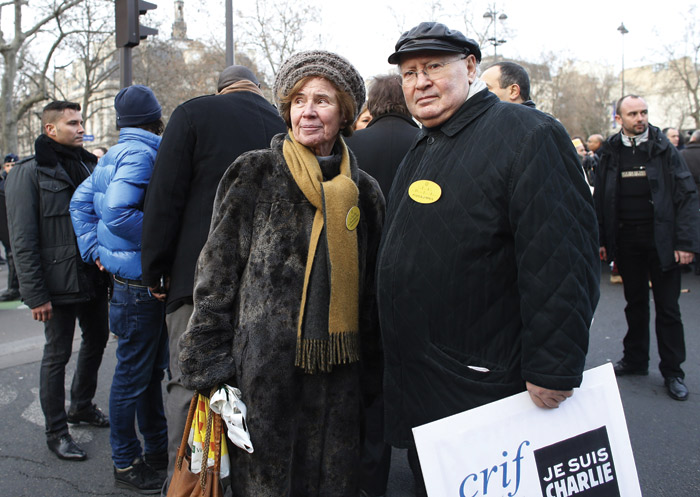
What is the “Jewish question” today? Is there a “Jewish question” apart from the “Israeli question”? Sixty-seven years after the establishment of the State of Israel, we are at a historical juncture when, for the first time in two millennia, the Jewish center of gravity has moved from the diaspora to the sovereign Jewish homeland. The idea of Israel as the focal point of Jewish life was the dream of the founders of Zionism. Shortly after the establishment of Israel, Ben-Gurion declared “With the creation of the state, we are standing on the edge of a new era. Not only in the life of the Jewish community in Israel, but—I believe—in the history of Judaism itself.”
When Ben-Gurion said this in 1948, the citizens of the new Jewish polity comprised only 6.5 percent of world Jewish population. Today, as Israel is becoming the home for the near-majority of world Jewry, the process of “Israelization” cannot be ignored. France is, historically, politically, and demographically a special case, and yet it may not be as different as one might like to think. The anti-Jewish violence may only be accelerating a natural process of reorientation, with dramatic implications for world Jewish civilization and for Judaism.
In the United States, where Jewish ethnic identity is declining and assimilation is pervasive, Israel and its related challenges are the prime cause for Jewish mobilization, rejuvenation, discontent, and controversy. The fact that American Jewry is large, pluralistic, and relatively safe from the dangers of anti-Semitism provides American Jews, at least for now, with a greater space for Jewish cultural and religious expression that is unrelated to the Israeli scene. Yet, for Jews in other countries whose Jewish identity is largely constituted by their ties to Israel—its religious practices, as well as its security challenges, not to speak of its promise as a safe haven—there is no escape from the Israelization of Jewish identity and, indeed, of Judaism itself.
After American Jewry, the Jews of France constitute the second largest Jewish population in the diaspora. While the violence they face rightly grips their attention and ours, the radical reorientation of their Judaism, taken in the broadest sense, may prove just as historically significant.
Comments
You must log in to comment Log In
Suggested Reading
Poets of the Tribe
The story of 12 Hebrew poets—in America.
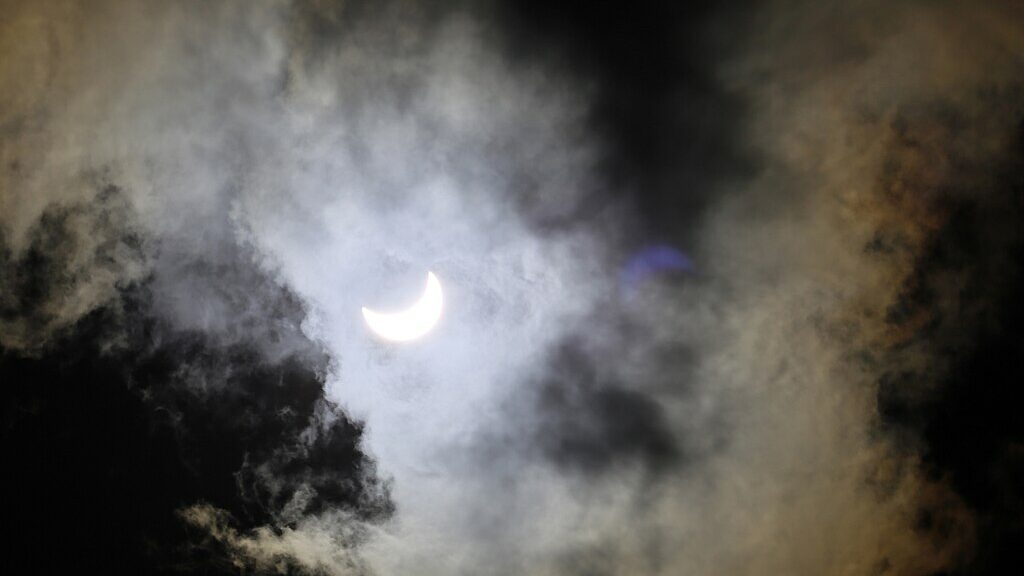
Total Eclipse of the Brakha
Do we make a blessing on a solar eclipse? Well, that depends if eclipses are evil or not.
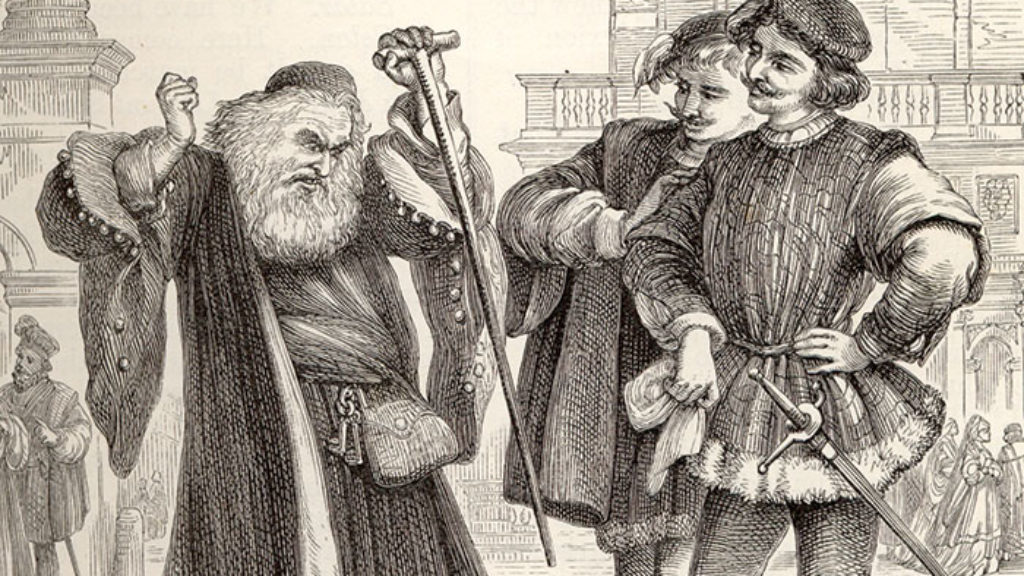
Sitting with Shylock on Yom Kippur
The poet Heinrich Heine imagined the merchant of Venice attending Neilah, the final service of Yom Kippur, but I find him earlier in the day, at Mincha, and we are listening together to the story of another Jew among Gentiles, bitter at being compelled to show mercy.
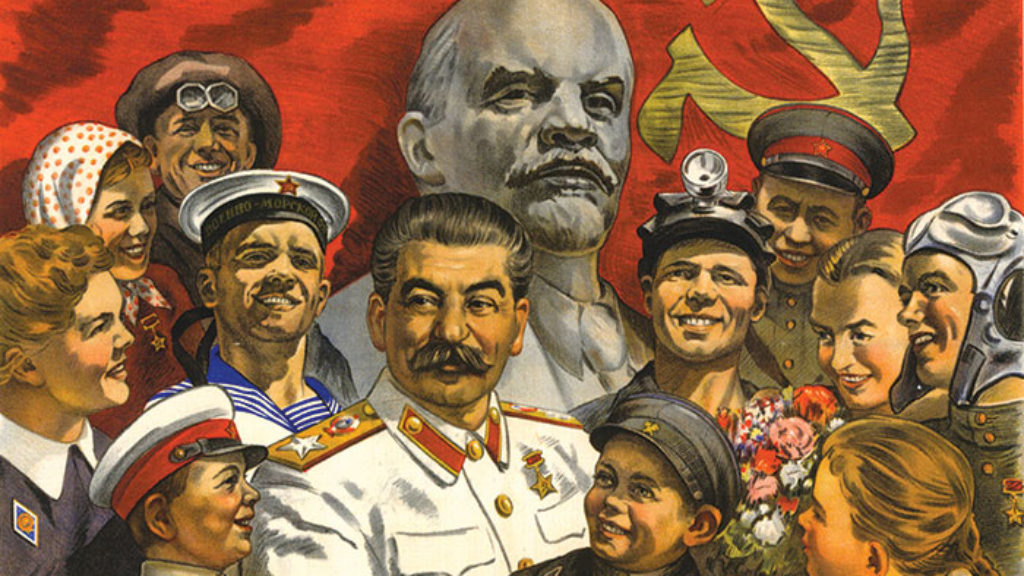
Jews, Revolutionism, and Doublethink
Even in the Gulag, it was difficult to give up the belief in the Revolution. Take Evgenia Ginzburg, for example . . .
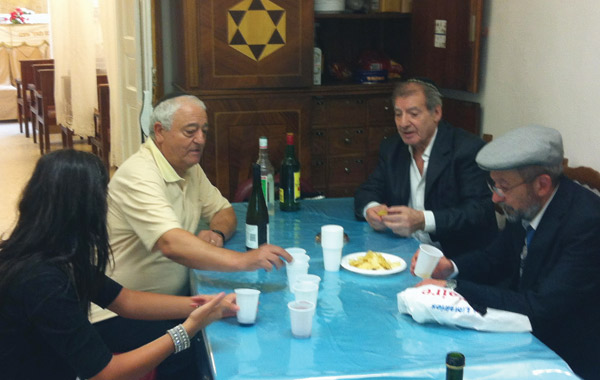
amycroth3
Why, after the Six-Day War, did France go from pro-Israel to pro-Arab?
Stephenb110
Yassher Koah to Professors Shain and Fainberg for their nuanced presentation of the state of French Jewry today.
A few remarks:
The process by which French Jewry became strongly identified with Israel began much earlier especially following the Six-Day War and the Yom Kippur War.
One must emphasize that a significant number of Moroccan and Tunisian Jews who settled in France in the 1950s and the 1960s have members of their families who made aliyah directly from Morocco and Tunisia to Israel during the same period.Strong family ties thus produced close relations between Israel and French Jewish community.
In addition, there are a number of North African Jews who grew up in Israel and left to settle in France.
Finally, the Renouveau Juif begun by Henri Hadjenberg in the early 1980s organized for the first time large public rallies in support of Israel.
The authors use the term "final exit" to describe French Jewish aliyah. This term occults the fact that between 15% and 20% of French Jews do not succeed in settling in Israel and return to France.
In addition, the authors do not address the question of "internal migration" Much like American Jews joining other whites in leaving the inner cities of America, this phenomenon is also present in France. The 17th arrondissement a safe and prosperous neighborhood of Paris has become the largest Jewish neighborhood of continental Europe with more than 30,000 Jews.
Concerning Liberal Judaism in France: There are not two liberal synagogues in France but two communities of the Mouvement Juif Liberal de France. France has more than 13 Liberal synagogues today.
Concerning French Jewish identity: As is the case in America and other Diaspora communities: there are Jews who while not members of synagogues and not especially Zionist create connections with Judaism through secular cultural expression. The Club Laique Enfance Juive and Cercle Bernard Lazare are a couple of examples here in Paris.
A careful study of the anti-Semitic attitudes of three particular groups of French society (which do not constitute the majority of French non-Jewish citizens) was conducted by Dominique Reynié recently. While not in English this an important contribution to our understanding of the evolution of anti-Semitism in France amongst the Muslim population, the supporters of the Far-Right, and the Extreme Left.